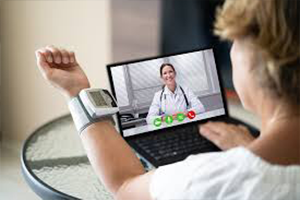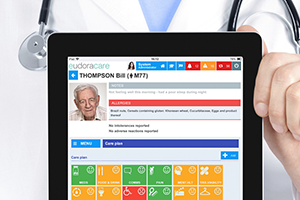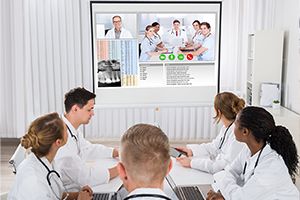TCS
The TCS (Telehealth Consultation System) revolutionizes healthcare delivery by providing convenient and prompt online doctor consultations, enabling patients to address their health issues from the comfort of their own homes. This advanced platform supports a wide range of medical services, from treating common ailments such as flu, cold, allergies, and minor injuries, to offering comprehensive mental health support. By leveraging cutting-edge telecommunication technologies, TCS ensures seamless and effective virtual consultations, enhancing patient access to quality healthcare.
TCS is designed to facilitate not only immediate medical consultations but also long-term patient care. The system integrates real-time video consultations, secure messaging, and remote monitoring capabilities, allowing healthcare providers to maintain continuous engagement with their patients. Furthermore, TCS includes an efficient drug delivery system, ensuring that patients receive their prescribed medications promptly at their doorstep. This holistic approach to telehealth empowers patients with timely medical advice and treatment, ultimately improving health outcomes and patient satisfaction.

Problem Statement
In the current healthcare landscape, access to timely and efficient medical consultations is a significant challenge, exacerbated by geographical barriers, limited availability of healthcare professionals, and the increasing burden on healthcare facilities. Traditional healthcare delivery models often result in prolonged waiting times, inconvenient travel requirements, and limited access to specialized medical advice, particularly for individuals in remote or underserved areas. Additionally, the ongoing global health crises and the rising demand for mental health services further strain the existing healthcare infrastructure, hindering the provision of comprehensive and continuous patient care.
Moreover, the management of chronic conditions and the delivery of preventive healthcare services are often compromised due to the lack of real-time patient monitoring and engagement. Patients frequently face difficulties in adhering to treatment plans, accessing necessary medications, and receiving timely follow-ups, which can lead to suboptimal health outcomes and increased healthcare costs. The absence of an integrated system that facilitates seamless communication between patients and healthcare providers, while ensuring the secure and efficient management of medical data, presents a critical gap in the current healthcare framework. Addressing these multifaceted challenges requires a robust, scalable, and technologically advanced solution that enhances patient access to quality healthcare, optimizes healthcare delivery processes, and promotes overall public health and well-being.





